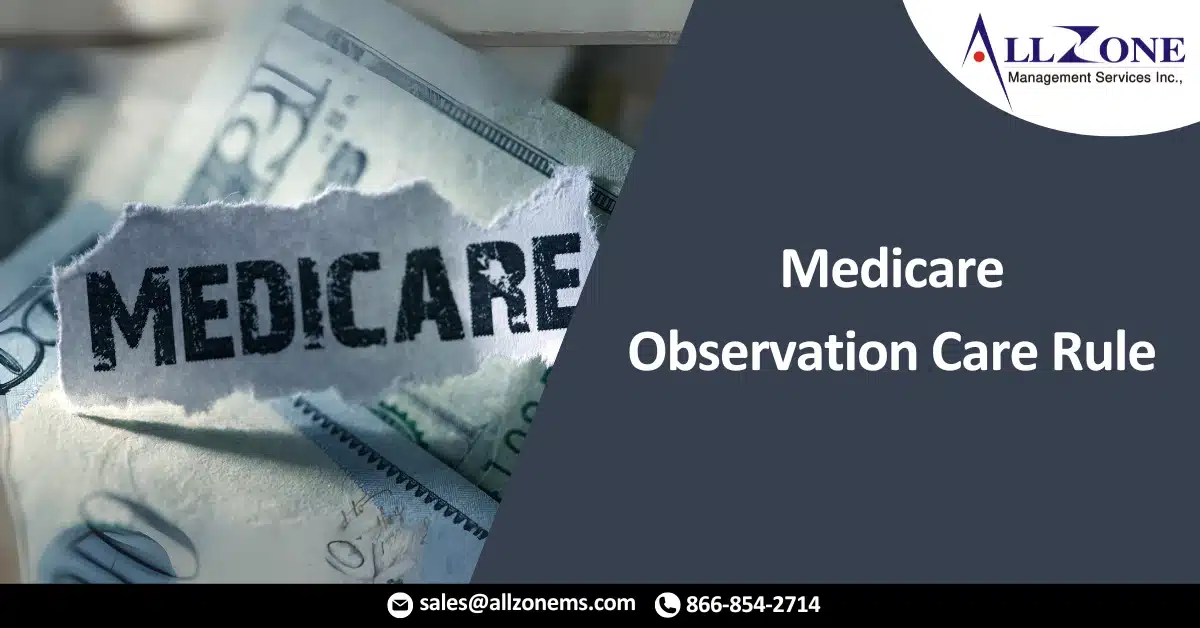Seniors often found out only when they got surprise bills for the services Medicare doesn’t cover for observation patients.
Under a new federal law, hospitals across the country must now alert Medicare patients when they are getting observation care and why they were not admitted — even if they stay in the hospital a few nights. For years, seniors often found out only when they got surprise bills for the services Medicare doesn’t cover for observation patients, including some drugs and expensive nursing home care.
The notice may cushion the shock but probably not settle the issue.
When patients are too sick to go home but not sick enough to be admitted, observation care gives doctors time to figure out what’s wrong. It is considered an outpatient service, like a doctor’s visit. Unless their care falls under a new Medicare bundled-payment category, observation patients pay a share of the cost of each test, treatment or other services.
And if they need nursing home care to recover their strength, Medicare won’t pay for it because that coverage requires a prior hospital admission of at least three consecutive days. Observation time doesn’t count.
“The observation care notice is a step in the right direction, but it doesn’t fix the conundrum some people find themselves in when they need nursing home care following an observation stay,” said Stacy Sanders, federal policy director at the Medicare Rights Center, a consumer advocacy group.
Medicare officials have wrestled for years with complaints about observation care from patients, members of Congress, doctors and hospitals. In 2013, officials issued the “two-midnight” rule. With some exceptions, when doctors expect patients to stay in the hospital for more than two-midnights, they should be admitted, although doctors can still opt for observation.
But the rule has not reduced observation visits, the Health and Human Services inspector general reported in December. “An increased number of beneficiaries in outpatient stays pay more and have limited access to [nursing home] services than they would as inpatients,” the IG found.
The new notice drafted by Medicare officials must be provided after the patient has received observation care for 24 hours and no later than 36 hours. Although there’s a space for patients or their representatives to sign it “to show you received and understand this notice,” the instructions for providers say signing is optional.
Some hospitals already notify observation patients, either voluntarily or in more than half a dozen states that require it, including California and New York.
Doctors and hospital representatives still have questions about how to fill out the new observation care form, including why the patient has not been admitted. During a conference call Feb. 28, they repeatedly asked Medicare officials if the reason must be a clinical one specific for each patient or a generic explanation, such as the individual did not meet admission criteria. The officials said it must be a specific clinical reason, according to hospital representatives who were on the call.
Atlanta’s Emory University hospital system added a list of reasons to the form that its doctors can check off, “to minimize confusion and improve clarity,” said Michael Ross, medical director of observation medicine and a professor of emergency medicine at Emory. Emory also set up a special help line for patients and their families who want more information, he said.
The form also explains that observation care is covered under Medicare’s Part B benefit, and patients “generally pay a copayment for each outpatient hospital service” and the amounts can vary. But Ross said “this wording may be antiquated.” Medicare revised some billing codes last year to combine several observation services into one category. That means beneficiaries are responsible for one copayment if the observation stay meets certain criteria.
The new payment package also includes coverage for some prescription drugs to treat the emergency condition that brought the observation patient to the hospital, said Debby Rogers, the California Hospital Association’s vice president of clinical performance and transformation. Other drugs for that condition will be billed under Part B with separate copayments, she said.
But patients will have to pay out-of-pocket for any medications the hospital provides for preexisting chronic conditions such as high cholesterol, and then seek some reimbursement from their Medicare Part D drug plans for any covered drugs.
For more information: CLICK HERE

